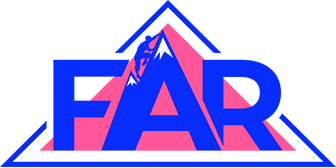Drug addiction is a complex issue that affects millions of people around the world. It not only has a devastating impact on individuals but also their families and society as a whole. One of the most commonly asked questions is what percentage of drug addicts recover?
Understanding the factors that influence recovery rates is crucial in developing effective treatment strategies and support systems. In this article, we will explore various aspects related to drug addiction recovery rates and delve into the success factors and challenges faced by those seeking to overcome addiction.
What Percentage of Drug Addicts Recover?
According to a study by The Centers for Disease Control and Prevention (CDC) and the National Institute on Drug Abuse, up to 75% of people who experience addiction eventually go on to recover. While this figure is promising, it is important to recognize the role that addiction treatment plays in recovery rates.
Rehabilitation programs play a pivotal role in addressing drug addiction and facilitating recovery. The success rate of rehab varies depending on factors such as the individual’s commitment to the program, the quality of the treatment facility, and the specifics of the addiction being treated.
Individuals who complete a targeted and comprehensive rehab program have a significantly higher chance of long-term recovery compared to those who attempt to quit without professional assistance.
Factors Affecting Recovery Rates in Drug Addiction Treatment
Recovery rates in drug addiction treatment can be influenced by various factors. Some of these factors include:

Motivation and commitment
The individual’s willingness and dedication to change play a significant role in recovery outcomes.
Support systems
The presence of a strong support network consisting of family, friends, and support groups can greatly enhance the chances of successful recovery.
Co-occurring mental health disorders
Individuals with co-occurring mental health disorders face additional challenges in recovery and may require specialized treatment that addresses both the addiction and the mental health issue.
Access to resources
The availability and accessibility of treatment resources, such as therapy, support groups, and medications, can impact recovery rates.
Duration and intensity of treatment
Longer and more intensive treatment programs tend to yield higher recovery rates compared to shorter or less intensive interventions.
The quality of the therapeutic relationship between the individual and their treatment provider can also significantly influence recovery outcomes. A strong, trusting relationship built on mutual respect and empathy can foster a sense of safety and support, enhancing the effectiveness of the treatment process.
Additionally, the individual’s living environment plays a crucial role in their recovery journey. A stable and supportive living environment free from triggers and temptations can create a conducive space for healing and growth. On the other hand, an environment rife with stress, conflict, or substance use can hinder progress and increase the risk of relapse.
Strategies for Improving Recovery Rates in Drug Addiction
To improve recovery rates for drug addiction, it is crucial to implement strategies that address the diverse needs of individuals seeking help. Some effective strategies include:
Personalized treatment plans
Tailoring treatment approaches to match the unique needs, strengths, and challenges of each individual can increase the effectiveness of interventions.
Integrated care
Coordinating addiction treatment with mental health services and other healthcare specialties can provide comprehensive care and better address the complex nature of addiction.
Continuing care and relapse prevention
Providing ongoing support, follow-up care, and relapse prevention programs can significantly reduce the risk of relapse and enhance long-term recovery outcomes.
Community involvement
Engaging communities in raising awareness, reducing stigma, and offering support to individuals in recovery can foster a supportive environment that promotes successful rehabilitation.
Evidence-based practices
Utilizing treatment approaches that have been extensively researched and proven effective can improve recovery rates and ensure the delivery of high-quality care.

Another crucial aspect of improving recovery rates in drug addiction is the incorporation of holistic approaches to treatment. Holistic treatment focuses on addressing not only the physical aspects of addiction but also the emotional, mental, and spiritual well-being of individuals. By taking a holistic approach, treatment providers can help individuals develop a deeper understanding of themselves and their addiction, leading to more sustainable recovery outcomes.
Furthermore, peer support programs play a significant role in enhancing recovery rates. Peer support groups provide individuals in recovery with a sense of community, understanding, and encouragement from others who have gone through similar experiences. This shared connection can help reduce feelings of isolation and provide valuable insights and coping strategies for navigating the challenges of recovery.
Increasing Your Chance at Recovery with FAR
At Focused Addiction Recovery, we provide residents of North Carolina with exceptional care in an outpatient setting. Our programs include:
- Outpatient Detox: A medically supervised program to safely withdraw from drugs or alcohol.
- Outpatient Rehab: A customized treatment plan tailored to each client’s needs, utilizing evidence-based practices and holistic approaches for comprehensive care.
- Intensive Outpatient Program (IOP): For individuals requiring a more intensive level of care, we offer a structured program consisting of group therapy, individual therapy, and educational sessions.
- Partial Hospitalization Program (PHP): For those in need of a higher level of care, our PHP offers a structured program with full-day treatment and clinical support.
- Sober Living: We also provide sober living accommodations to help individuals transition from treatment back into their daily lives in a supportive and substance-free environment.
At FAR, we understand that no two individuals are the same, and neither are their journeys to recovery. That’s why we offer personalized and holistic care tailored to each individual’s unique needs. Our team of compassionate professionals is dedicated to helping you or your loved one achieve lasting recovery and reclaim a fulfilling life free from addiction.
If you or someone you know is struggling with drug addiction, don’t hesitate to reach out for help. Recovery is possible, and with the right support and treatment, you can overcome addiction and live a healthier, happier life. Contact FAR today to learn more about our programs in North Carolina and how we can help you on your journey to recovery.

